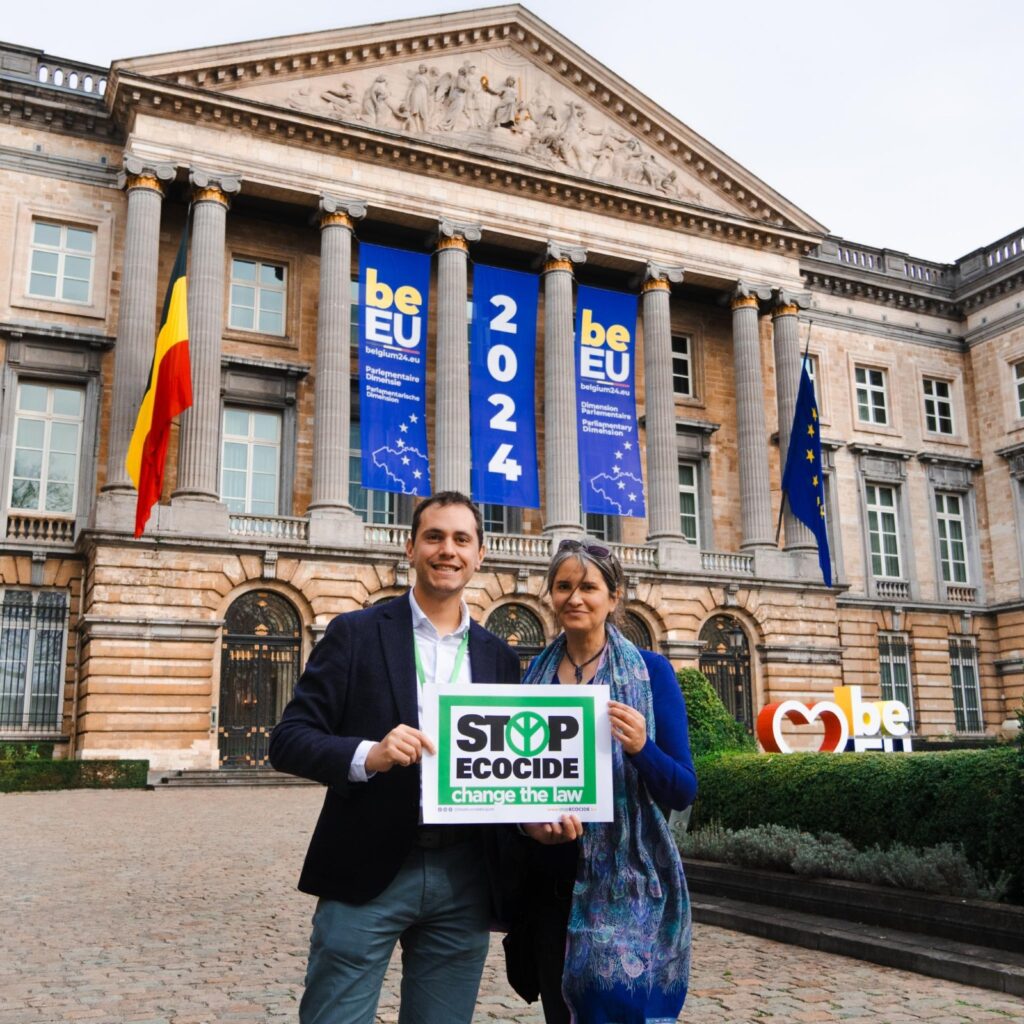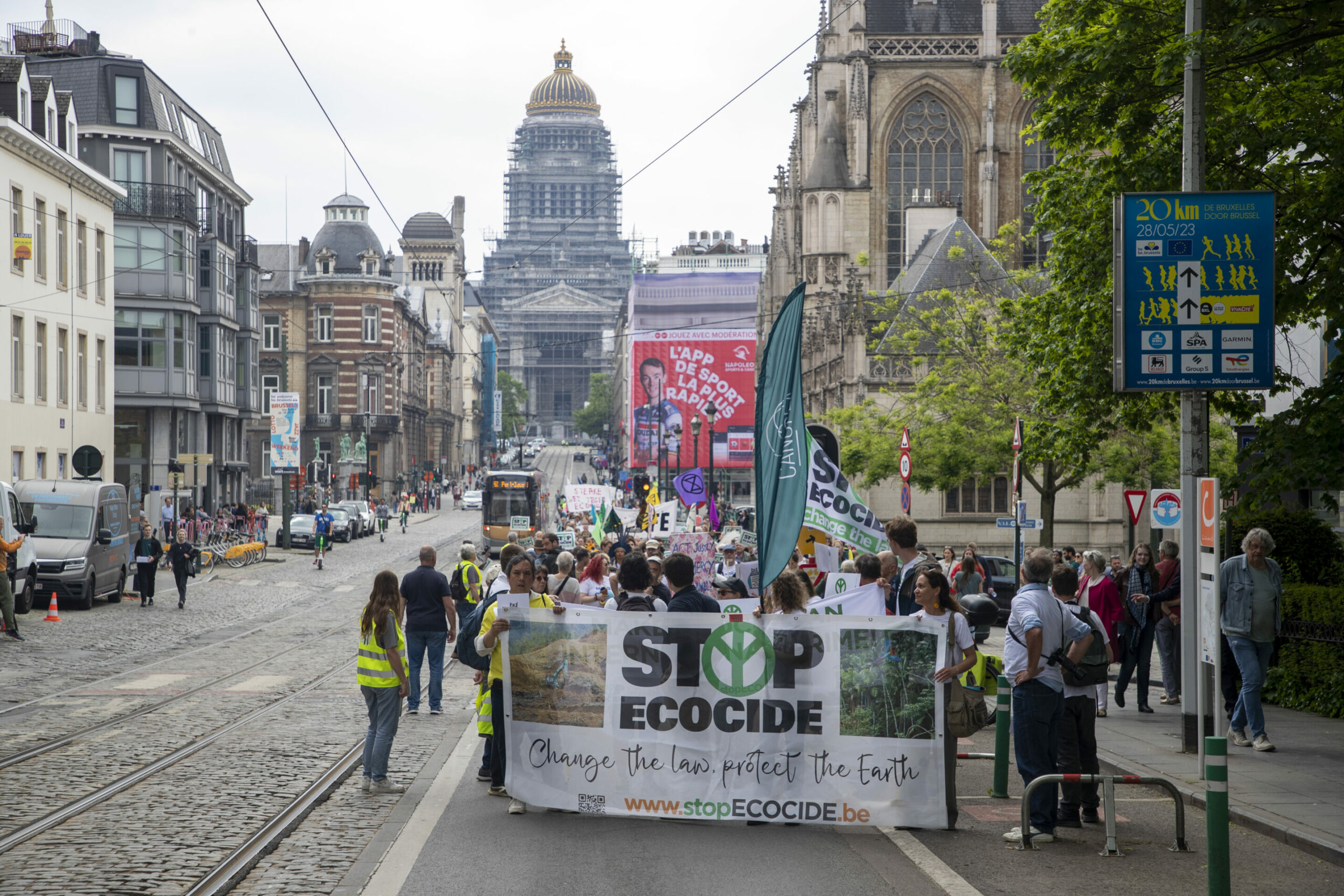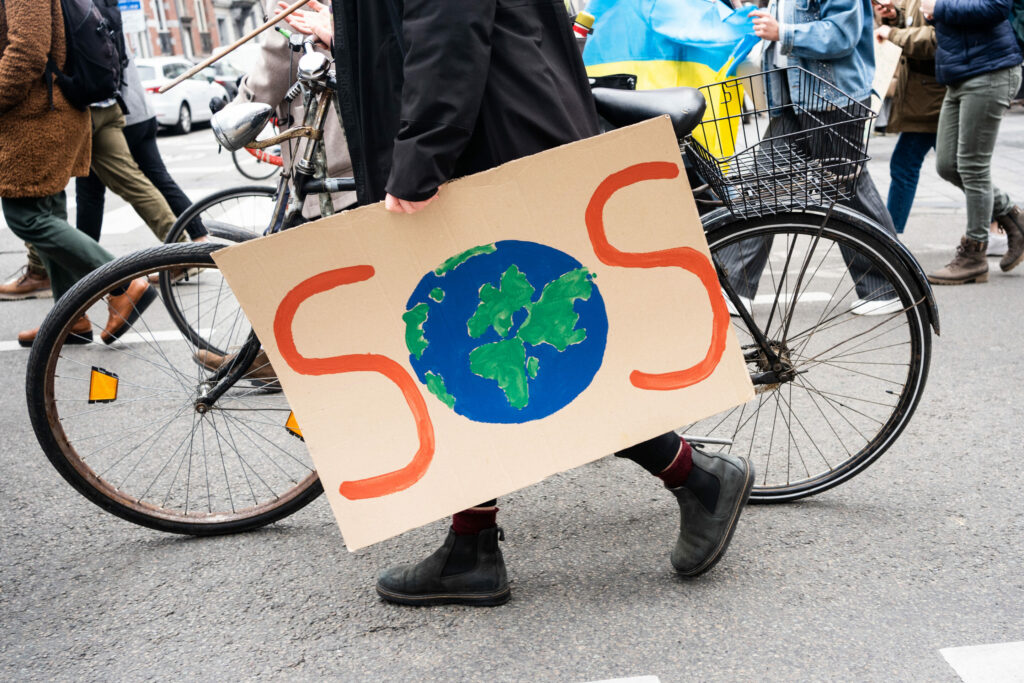Belgium's Federal Parliament approved a completely renewed Penal Code on Thursday evening, which – for the first time in Europe – includes recognition of the crime of ecocide at both the national and international levels.
From now on, ecocide is included in the criminal code, as are crimes against humanity and genocide. This ecocide law makes it possible to convict and punish serious, large-scale and irreversible crimes against nature with 20 years in prison and a fine of €1.6 million – making Belgium the first EU Member State to bring domestic law in line with the European Union’s revised Environmental Crimes Directive.
"A crime against nature is by definition a crime against all of us. The recognition of ecocide in criminal law is a milestone in the recognition of nature's rights," said Ruth-Marie Henckes, Biodiversity Campaigner at Greenpeace.
"We would have liked to have seen a broader application of the law to deter all types of serious nature destruction (such as also large-scale water pollution or illegal deforestation), but this law already gives us the means in some cases to make those responsible pay for the consequences of their crimes, for example in the case of a shipwreck of an oil tanker in the North Sea," she added.
At the forefront of the global conversation
Nationally, the new crime of ecocide, aimed at preventing and punishing the most severe cases of environmental degradation, such as large oil spills, will be applied to individuals in the highest positions of decision-making power and to corporations.
Belgium's environmental legislation is primarily regionalised, meaning most of it falls under the responsibility of the three regional governments of Flanders, Wallonia and Brussels. This new law, however, is limited to areas within the jurisdiction of the Federal Government, such as the North Sea and nuclear waste management.
Still, the limited domestic scope of the new bill is not a reason to dismiss the significance of the development, says Patricia Willocq, Director of Stop Ecocide Belgium.
All 27 Member States are tasked with aligning their domestic penal codes with this updated directive – a process that will extend to Belgium's three regions. "We anticipate that this effort will significantly reduce any disparities between Federal and Regional environmental criminal laws. As Belgium holds the presidency of the EU, this directive should encourage the regions to play their part in the area of their competence."

Samuel Cogolati, Federal MP for Ecolo (left) and Jojo Mehta, CEO and co-founder of Stop Ecocide International. Credit: Denis Gousset
Willocq stressed that this decision puts Belgium "at the forefront of a truly global conversation" around criminalising the most severe harms to nature. She added that the country must continue to advocate for the recognition of ecocide at the International Criminal Court, alongside genocide.
"To fully protect nature, it is necessary that those that would willfully destroy vast swathes of the natural world, in turn causing untold human harm, should be criminalised," she added. "We will continue to campaign to eradicate ecocide from Belgium and the world."
Additionally, Belgium has become the first European country to recognise ecocide as an international crime, based on the consensus definition proposed in 2021 by the Independent Expert Panel (IEP) convened by the Stop Ecocide Foundation, in its penal code.
Previously, the country already recognised genocide, crimes against humanity, war crimes and the crime of aggression, and is now adding a nature-centred element to its penal code by recognising a fifth crime under international law: ecocide.

A protest march in Brussels, to support the banning of ecocide. Credit: Belga / Nicolas Maeterlinck
"After four years of fighting in Parliament and in civil society, our penal code is finally coming to the aid of the planet: the worst attacks against the environment are about to be criminalised," said Federal MP Samuel Cogolati (Ecolo). "Our mobilisation is bearing fruit."
CEO and co-founder of Stop Ecocide International, Jojo Mehta, said that the conversation around a new ecocide law is gathering momentum as a growing list of countries – such as the Netherlands, Scotland, Mexico, Brazil, England, Italy and Spain – are taking concrete steps towards establishing new domestic crimes of ecocide in the last year.
"With prominent voices like that of Belgium leading the way, tangible progress is being made internationally, particularly so in Europe following last November’s agreement to include ecocide-level crimes in the EU’s revised environmental crimes directive," Mehta said. "I have no doubt we will see international recognition of the crime of ecocide in the near future."

